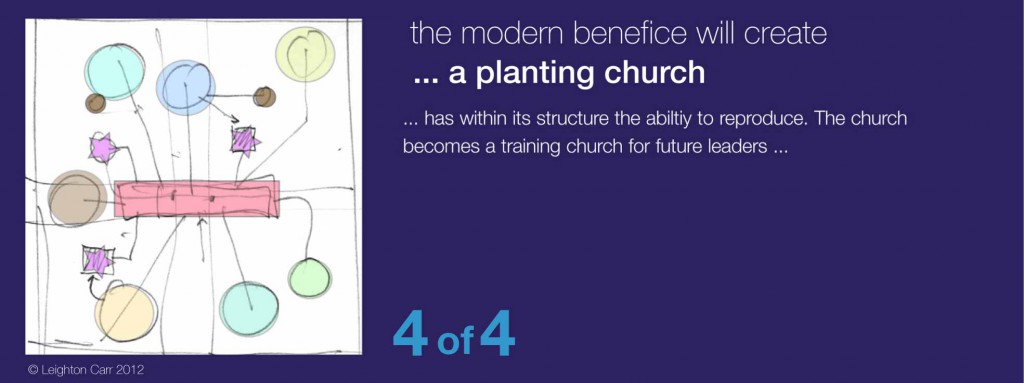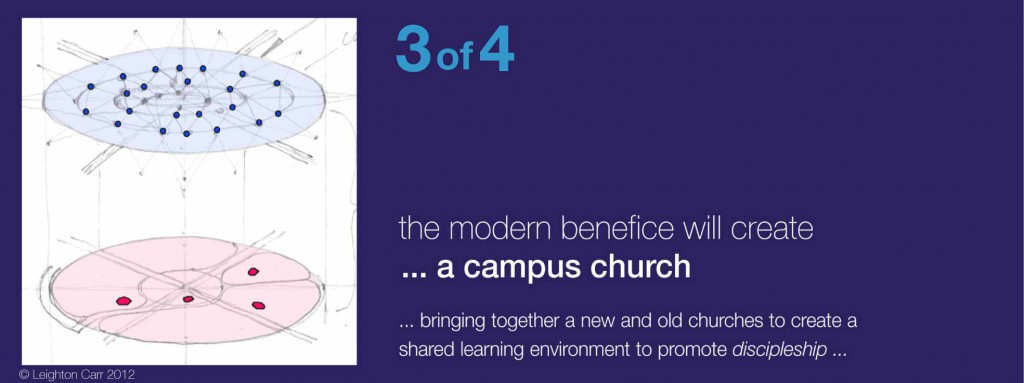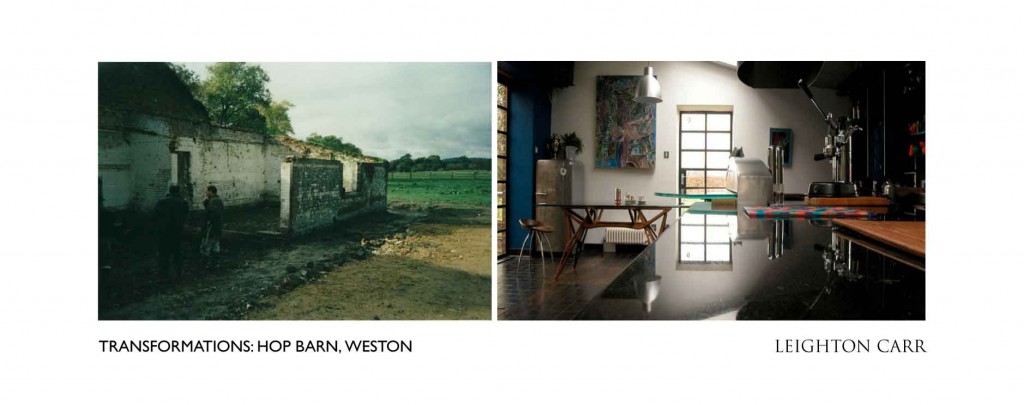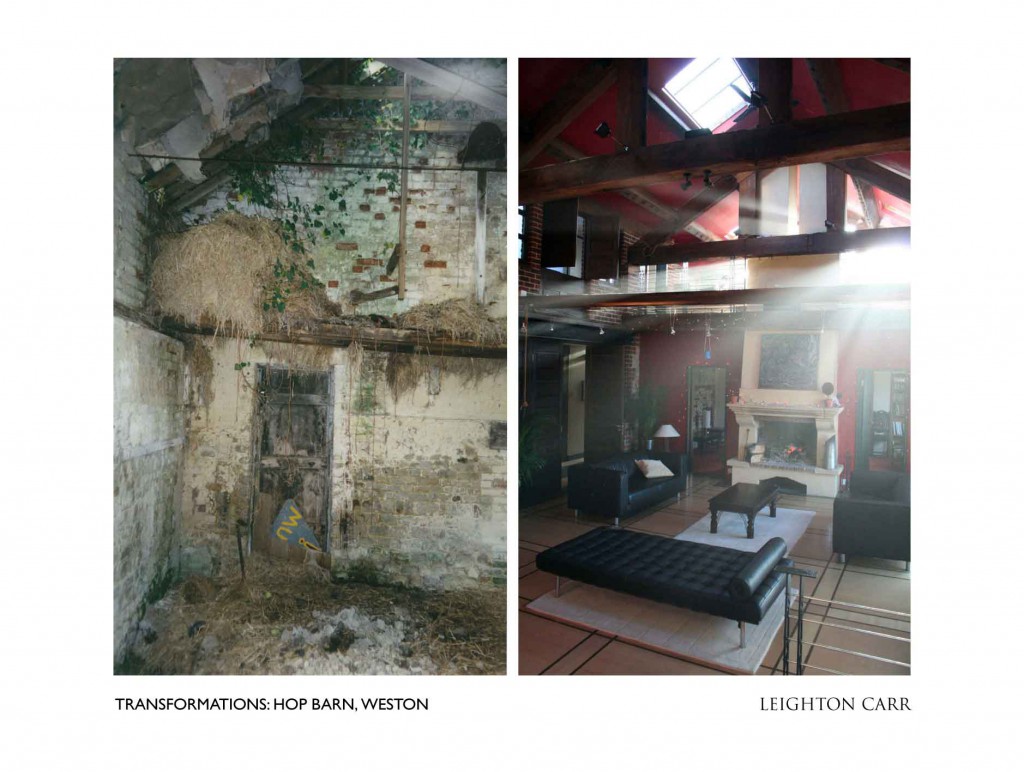Category: CREATIVITY
The successful modern Church of England benefice 4 – Planting
The successful modern Church of England benefice is an organic, networked and campus church, created for growth and witness. It is the logical outworking of this new Anglican focus that the successful benefice will find opportunities to share its resources and experience and expertise with other churches and in other places. It will become a Planting church. At times this will mean offering help to Anglican and other churches experiencing difficulties, and at other times it will mean starting new ventures of different shapes and styles to meet particular needs and opportunities.\r\n\r\nThis is 4 of 4: to see the whole poster go here\r\n\r\nOr see each individual post here: 1-Organic 2-Networked 3-Campus\r\n\r\n
The successful modern Church of England benefice 3 – Campus
The successful modern benefice in the Church of England will need to become a Campus. This means it will draw together resources for teaching, mentoring, coaching and training, for the purpose of helping Christians deepen their discipleship and witness. Lay ministers will need to work in a more flexible way, working in teams, with each person working to their strength, be it research, writing, preaching, coaching. The Campus church will also attract external resources from outside the Anglican church – theologians and educators – as well as offer resources to all local colleges and schools (not only Church of England schools!) to build up the life of society as a whole.\r\n\r\nThis is 3 of 4: see the whole poster go here\r\n\r\nOr see each individual post here: 1-Organic 2-Networked 4-Planting\r\n
The successful modern Church of England benefice 2 – Networked
A successful modern Church of England benefice will need to be Networked. That is, it will need to work across churches of different styles, theology and history, and across parish boundaries. Networked churches will make the most of resources, limiting duplication to maximise effectiveness and sustainability. To create and environment for sustainable growth the successful benefice will draw on the expertise of many people wherever they are found, in Anglican churches and others.\r\n\r\nThis is two of four: see the whole poster go here\r\n\r\nOr see each individual post here: 1-Organic 3-Campus 4-Planting\r\n\r\n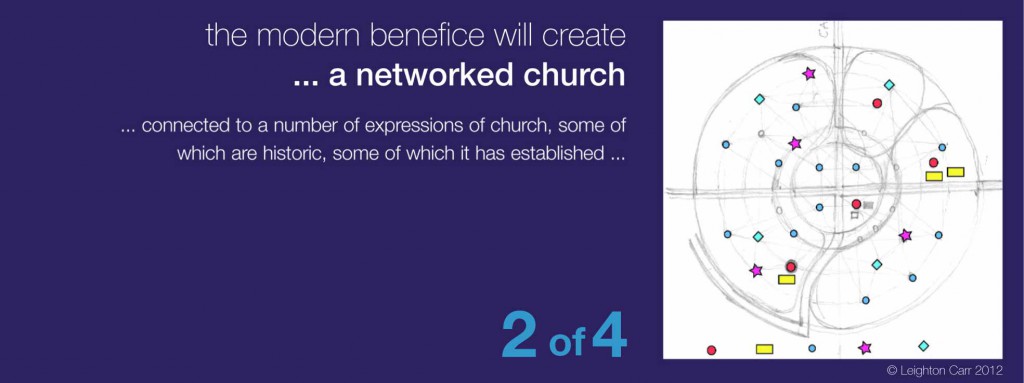 \r\n\r\n
\r\n\r\n
- The Networked Benefice
Leaf (1)
The successful modern Church of England benefice 1 – Organic
A successful modern Church of England benefice will need to be Organic. That is, it will need to grow and flex within existing and new areas – geographically, physically, theologically and socially. Rigid strategies won’t cut it. Leaders will have to be creative and articulate, the people they lead will need to be patient and forgiving – and more involved! All will have to be totally committed to making it work if it is to grow. This has not been the Church of England way in recent times, but if it is survive into an uncertain future then traditional Anglican sensibilities will have to be challenged.\r\n\r\nThis is 1 of 4: see the whole poster go here\r\n\r\nOr see each individual post here: 2-Networked 3-Campus 4-Planting\r\n\r\n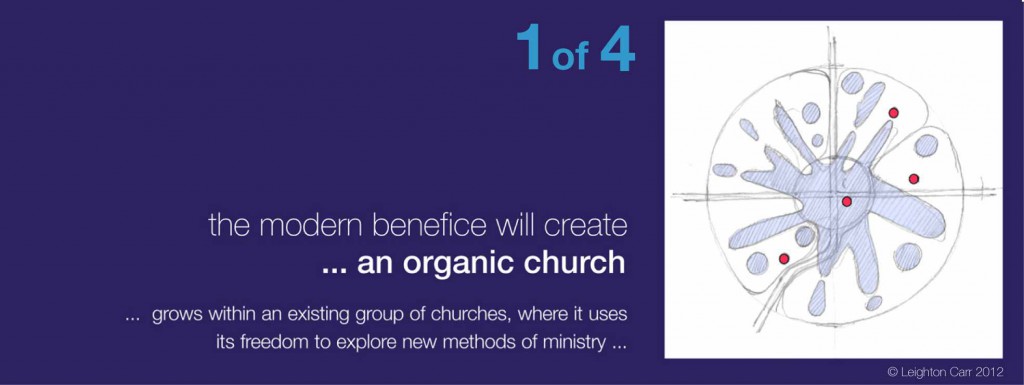 \r\n\r\n
\r\n\r\n
- The Successful Modern Benefice is … Organic
A Sofa called The Beast
We have an enormous sofa. We call it The Beast.\r\n\r\nIt’s a Tetrad four person sofa that only fits in one place in the room – in front of the radiator. It’s so big it absorbs probably three quarters of all heat emitted.\r\n\r\nWhich should make it great to sit on. Hot and Big.\r\n\r\nBut no. It’s too deep to sit on without tucking legs and feet on the cushions. Imagine a sofa larger than a single bed. And the cushions are so big that people don’t sit on them as much as climb into them, and it’s hard to see out, let alone get out, once in there. And of course guests feel uncomfortable sitting without their feet on the floor.\r\n\r\nWe bought it as part of a three sofa strategy developed to allow at least nine people to sit comfortably in the room.\r\n\r\nWhy? I really can’t remember. It was something to do with growing a church.\r\n\r\nSo we have a very big sofa.\r\nGuests don’t want to sit on it\r\nThe room is cold.\r\nAnd we never have nine people in the room at the same time.\r\n\r\nWhich made us think, if buying the sofa didn’t bring people in, maybe if we got rid of the sofa we’d have more people over?\r\n\r\nWe paused for a moment.\r\n\r\nWhen spoken out loud that sounded as farcical as the weekly Sunday conversation about removing the pews in church.\r\n\r\nAs if removing the pews would grow the church …
Transformation: Hop Barn Weston: turning a wreck into a home (5)
Transformation: Hop Barn Weston: turning a wreck into a home (4)
Why are there so few APEs in church?
APEs.\r\n\r\nApostles. Prophets. Evangelists.\r\n\r\nWhere are they?\r\nWhy so few?\r\nWhy is the leadership of the local church almost entirely in the hands of Pastor/Teachers?\r\n\r\nHere are three possible reasons:\r\n\r\nFirst, the Trustees of the institutional denominations (generally) don’t trust APEs with the established church, and they prefer to install Pastors/Teachers.\r\n\r\nSecond, the Pastors installed in the local church (generally) can’t lead APEs, being focused as they are on ensuring the wellbeing of the Ordinary Church Member.\r\n\r\nThird, the Ordinary Church Member is (generally) afraid of APEs and would rather be left alone with their Pastors and Teachers to grow in peace.\r\n\r\nFar fetched? Maybe not.\r\n\r\nThe word that is perhaps at the root of this issue is ‘Trustee’.\r\n\r\nAt a deep level this word ‘Trustee’ has come to define much of our understanding of what a good church leader should be at all levels of church life, lay and ordained.\r\n\r\nThat’s fine and right. Church leaders must not be careless.\r\n\r\nBut to be balanced we need to remember that we are Trustees of the Gospel as well as Trustees of the Church. We were given this trust of a Gospel to proclaim by Jesus himself.\r\n\r\nAnd Jesus kept the church for himself. His Bride, not ours. And we should give him credit that he’s managed the church quite well for 2,000 years often in spite of our efforts.\r\n\r\nOf course, identifying people by their gifts in this simplistic way is exclusive and somewhat debilitating. The messy human reality is that each of us has a mix of gifts, wisdom, experience, skills, beliefs and connections and it is out of this humanness that the church can flourish and grow by the leading of the Spirit.\r\n\r\nAnd APEs need to be better. Better at being careful, better at being led, and better at communicating to the wider church.\r\n\r\nThat being said, it should still be a matter of great concern that so few leaders, and even fewer Ordinary Church Members, seem to have been given the permission to stir up the necessary gifts within them to create a vibrant, Holy Spirit inspired, resurrection energised, culture challenging, life enhancing and dynamic church.

